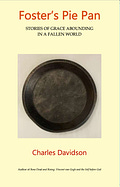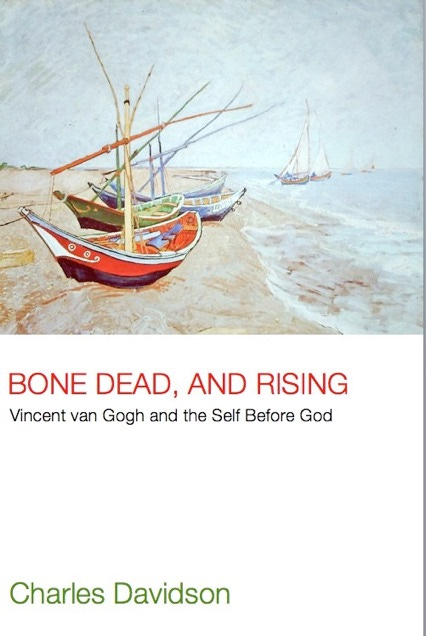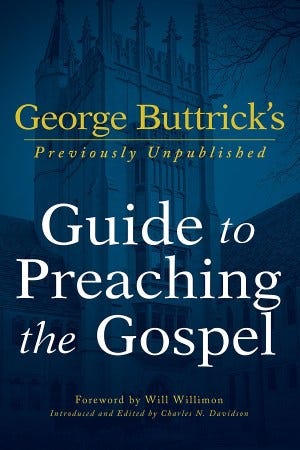Between the Book Covers
“Only a writer as sensitive to the power of words could give us a book like this that touches the heart. Priest of the word, Charles Davidson bids us to ‘Lift up your hearts.’ Read the book. It will lift you.” —Ross Mackenzie, historian emeritus, department of religion, Chautauqua Institution, NY
“It is one thing to know that our lived worlds are constructed by narratives, as I know. It is quite another matter to have a fund of good stories, know how to tell them, and evoke our interest via image, character, memory, and quick riffs that surprised. This is what Charles Davidson does in singular compelling ways. He invites us into a world—the world of his imaginative making—that is richly peopled by great poets, struggling animals, caring folk, indolent neighbors, and a whole company of saints. Religion (and therefore biblical texts) comes easily in this world as a part of normal thinking. This wondrous collection bears witness to those who do not want to miss out on the gifts that are stunningly given among us. These stories, in the skilled artistry of Davidson, keep giving us gifts in illuminating, transformative, and summoning ways.” —Walter Brueggemann, Columbia Theological Seminary
“Rich with stories and reflections from decades in pulpit and classroom and in open spaces, each personal story in Foster’s Pie Pan offers reminders of truths we depend on and refreshing perspectives on those truths—about how healing comes in surprising ways, and how the well-worn paths of ordinary life lead, again and again, to holy ground. As they turn these pages, readers of every generation will find themselves invited home.” —Marilyn McEntyre, professor, writing coach, author of Caring for Words in a Culture of Lies and When Poets Pray
“These stories are powerfully engaging. Davidson’s a gifted writer, causing the reader to want more. Each chapter is laced with wisdom as the sacred breaks through with depth and meaning. I was so moved by the book that I read each chapter several times. . . . This is a good read for pastors, parishioners, therapists, and clients.” —James Hyde, retired director, Program of Ethics and Pastoral Care, Department of Psychiatry, University of Louisville School of Medicine
“Dents and discoloration marring the surface and texture of an old tin pie plate suggest its usefulness and value to those through whose hands it has passed. Following the theme set forth in this opening metaphor, Charles Davidson has composed a set of variations that explore nuances of the presence of grace within the lives of people in which its influence is not readily apparent. Imaginative weaving and reflection take the reader beneath appearances for a glimpse of transcendence at play.” —Louis Reed, Presbyterian Psychological Services, Charlotte, NC
“A precious gift of compelling and touching sacred stories that reach inside of us and connect us with ourselves, God, and the community around us. Their deep reverence guides us to truth, reality, and God's amazing grace. I'll keep these stories nearby, to read and read again.” —Pat Bacon, pastor, Calvary Presbyterian Church (USA), Asheville, NC
“Davidson's rich and varied stories shimmer with grace and assurance, in recognition of the fact that what we hold in common is holy. There is depth here that evokes the reader's own memory of similar events and people.” —Keith D. Herron, adjunct professor, Central Baptist Theological Seminary; former moderator, Baptist Cooperative Fellowship; author of Living a Narrative Life
“Since the dawn of human consciousness, people have told stories to help them understand their lives and develop new ways of living. In this collection, Charles Davidson introduces us to the people that have shaped his life. . . . It is storytelling at its best.” —Walter Smith, honorably retired Presbyterian (USA) minister, author, and teacher
“Readers will relish these stories as opportunities to glimpse and savor insights that capture occasions of transformation in our lives.” —Paul Galbreath, professor of theology, Union Presbyterian Seminary, Charlotte, NC“
This richly detailed and deeply felt account of Van Gogh’s tormented and self-tormenting life, together with many telling quotations from his correspondence with his faithful brother Theo, will be essential reading for all who see him as one of the geniuses of the 19th century.” —Frederick Buechner, author of The Sacred Journey, Now and Then, The Magnificent Defeat, Longing for Home, A Room Called Remember, Godric, Secrets in the Dark, The Yellow Leaves
“How do we explain the disjointedness between the darkness of a life and the glory of the same man’s art? Davidson argues that the struggles of the van Gogh who felt without God were matched by the strokes of an artist who saw God made visible in a human face, a meal shared, cypress trees and yes, sunflowers. Davidson leaves us with this haunting question: ‘To what extent, if at all, is the divine presence revealed in the bleakest moments of suffering and despair?’ This book becomes personal as we consider where we are with God when we too are lost, ill and abandoned.” —Debra Bendis in The Christian Century
“The flow of the narrative and the presence of theological and psychological motifs help us re-vision the artist in a postmodern framework that opens new and creative channels for understanding.” —Cliff Edwards, author of Van Gogh and God, The Shoes of Van Gogh, and Mystery of the Night Café
“I was very impressed with the methodology mixing qualitative, psychoanalytic, and hermeneutic approaches. The author’s content analysis of Vincent’s letters took my breath away. His approach to the art brought to mind the segment of Kurosawa’s “Dreams” in which the director tried to get inside Vincent’s paintings using film technology.” —Susan reviewing on Goodreads
“As much a volume of poignant poetry as of delightfully crafted prose . . . consummate and definitive scholarship that reads like a novel. . . . Once you have taken up this volume it is impossible to put the book down. . . . Davidson is sensitive about the fine line that lies between the profound human suffering of a soul in the distress of grief beyond our imagination, deprivation beyond what we are willing to face straight on, loneliness that is inexpressible, alienation and rejection beyond redemption, on the one hand, and toying around the edges of psychosis, on the other. Where is psychic pain so indescribable that coping with it looks like a slide into alternative reality? None of us can know that unless we have been there and done that. In that place of human extremity labels are easy. Authentic descriptive definitions are impossible. Diagnosis is better set aside there. Empathy counts. Davidson has seen that and given us a wonderful book about how to do that. I assure you, you will not wish to miss this volume.” —J. Harold Ellens in HTS Theological Studies, South Africa
“A rich account of the influence of religion on Vincent van Gogh’s life and art . . . that need not be limited to a religious audience.” —Kirkus Reviews
“Charles Davidson's remarkable volume is a powerful and pastorally sensitive biblical/theological interpretation of Vincent van Gogh's utterly productive and painful pilgrimage as a passionate artistic genius.” —Dean K. Thompson, president emeritus, Louisville Presbyterian Theological Seminary
“This work of supreme art unveils Vincent van Gogh’s own great art—in life, work, and death. It accomplishes this in amazingly varied fashion and unpretentious, religious depth.” —Terrence N. Tice, editor of Hermann Peter's collected essays, Christian Ethics According to Schleiermacher, and translator of Friedrich Schleiermacher's Christmas Eve Celebration
“Those of us who have known opposition to our life-giving energy, through trauma and the broken heart, and yet search for that inner release, can identify with the way Charles Davidson brings Vincent van Gogh vividly alive in this book.” —John Campbell, author of January Snow and Other Poems
“I could not put down this probing, challenging, humane and beautiful book until I had completed reading it. Then, as I gently closed it, I said a whispered but audible, ‘Yes! And thanks!’”—Carl Walters, author of I, Mark: A Personal Encounter: Explorations in the Earliest Gospel
“Does the preacher now impress us as a ‘legate of the skies’? To many he is a pathetic figure, an anachronism, a stage-joke—an inoffensive little person jostled by the crowd, and wearing the expression of a startled rabbit. With one hand he holds a circular hat on a bewildered head and with the other desperately clutches an umbrella. The crowd pushes him from the sidewalk; the traffic shoots him back into the crowd. Some curse him; a few laugh; most are unaware of his existence.” —George Buttrick, Lyman Beecher Lectures, 1931
Whether we need preaching has been asked for hundreds of years, long before an age of media saturation from streaming 24-hour news, entertainment, politics, and sports. This question hounded George Buttrick, one of the most profound preachers of the twentieth century and often compared with Billy Graham. Buttrick offers a compelling answer to the question, but his answer remained hidden for 40 years until now.
In George Buttrick’s Guide to Preaching the Gospel, we learn why the world needs competent preachers, what the preacher must preach about, and how the preacher goes about creating the sermon with daily discipline and several practiced skills, including research, charting, outlining, writing, and performance. These writings have never been published before and were found by his grandchildren after his death. A brief biography of Buttrick introduces this master orator and professor to readers who do not know his work.
“With the advent of twenty-first-century tools for sermon preparation, one may wonder what a pulpit giant of the last century has to offer. It turns out that George Buttrick has some of the finest insights on sermon mechanics I’ve ever known. His phrases glow. His pastoral heart shines. His indisputably wise insights on the craft of preaching are a gift to readers who inhabit both pulpit and pew.” —Peter W. Marty, editor/publisher, The Christian Century
“Some of the greatest preachers of the past are in danger of being forgotten―which is why I’m so grateful whenever a publisher invests in reminding us of homiletical geniuses of former times. George Buttrick certainly deserves that accolade, and today’s preachers will certainly grow in wisdom and stature if they read, ponder, and inwardly digest Buttrick’s legacy.” —Mark Galli, former editor-in-chief, Christianity Today
“It is high time that a new generation of preachers and other readers should be introduced to the generative work of George Buttrick, the greatest preacher amid a generation of great preachers. The lectures put on full exhibit Buttrick’s great passion for the gospel, his immense authority rooted in the gospel, and his astonishing erudition. What strikes one the most, however, is that Buttrick is a careful and knowing craftsman. He knows what a sermon ought to do, and he knows how it can be accomplished. This book will be a great instruction and stimulus for its preacher-readers. Buttrick stands in solidarity with other preachers; those other preachers will be empowered and encouraged by his wise words.” —Walter Brueggemann, William Marcellus McPheeters professor emeritus of Old Testament, Columbia Theological Seminary, Decatur, GA
Charles Davidson is a retired Presbyterian pastor, psychotherapist, and professor of pastoral theology, care, and counseling. He writes broadly about the Christian faith and biblical topics, theology, religion, psychology, current affairs, culture, and politics.







